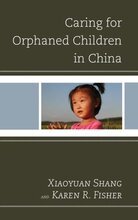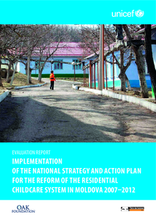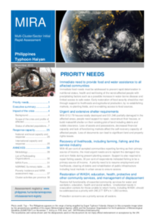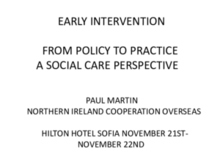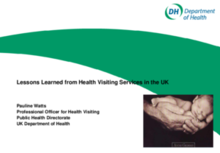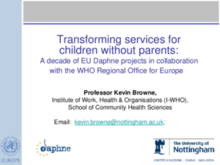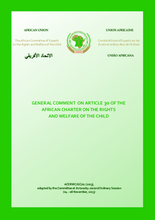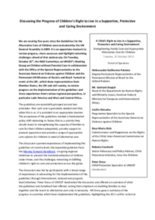Displaying 691 - 700 of 950
This book by Dr. Xiaoyuan Shang and Karen Fisher provides a comprehensive and clear picture of the situation of children who are orphaned or abandoned in China. It introduces the context and framework for the alternative care system and China’s welfare system as it applies to children, and provides a profile of orphans and of care arrangements, describing both the formal child welfare system and the informal care system, particularly kinship care.
The Government of the Republic of Moldova launched its childcare reforms in 2006 aiming to establish a network of community social assistants, develop family support services and alternative family placement services, and reorganise residential childcare institutions. This evaluation reviews the implementation of the National Strategy and Action Plan for the Reform of the Residential Childcare System 2007–2012 approved by the Government of the Republic of Moldova in July 2007.
A report on the evidence of children’s wellbeing relating economic strengthening programs and the need for expanded monitoring and evaluations.
This important study on foster care practices in India provides important insight into the history, approaches, challenges and opportunities facing the development of foster care services in the country, presenting a picture of foster care practices across nine Indian states.
To better understand the impact of Typhoon Haiyan on affected population, more than 40 agencies conducted a multi-cluster initial rapid assessment (MIRA) in 9 provinces covering 92 municipalities and 283 barangays. The (MIRA) confirmed that the impacts of Typhoon Haiyan follow a relatively clear geographical pattern.
This presentation to the 2012 Sofia Conference by Paul Martin introduces family support mechanisms and services to better equip parents to care for their children.
This presentation to the 2012 Sofia Conference by Pauline Watts, Professional Officer for Health Visiting, Public Health Directorate, United Kingdom Department of Health, introduces key lessons learned in regards to preventing child abandonment by looking into intervention and support services available to children and families in the United Kingdom.
This presentation to the 2012 Sofia Conference by Kevin Browne, Institute of Work, Health, and Organizations (I-WHO), School of Community Health Services at the University of Nottingham, introduces the collective findings of his research studies on the harmful effects of institutionalization of young children and major causes of child abandonment in Europe and prevention methods.
The African Committee of Experts on the Rights and Welfare of the Child (ACERWC) held its twenty-second Ordinary Session from 4-8 November 2013 and issued its first General Comment on the African Charter regarding the rights and welfare of children of incarcerated and imprisoned parents and primary caregivers.
On Tuesday, October 22rd, the NGO Committee on UNICEF’s Working Group on Children without Parental Care in collaboration with the Office of the Special Representative to the Secretary-General on Violence against Children and the Permanent UN Missions of Austria and Brazil hosted an event at the UN, which drew representatives from Member States, the UN and civil society, to review progress on the implementation of the guidelines and share experiences from various regional perspectives.

